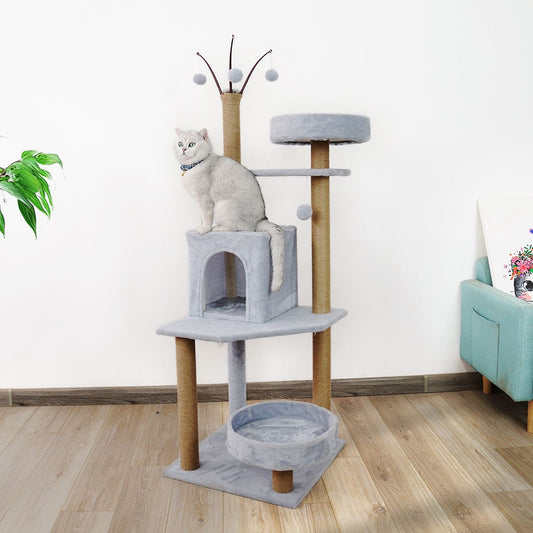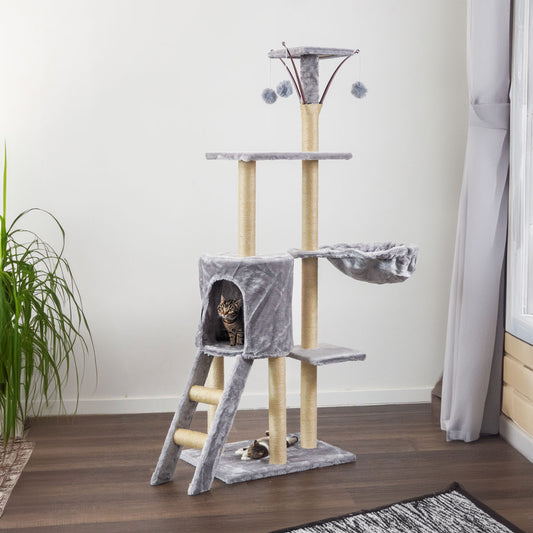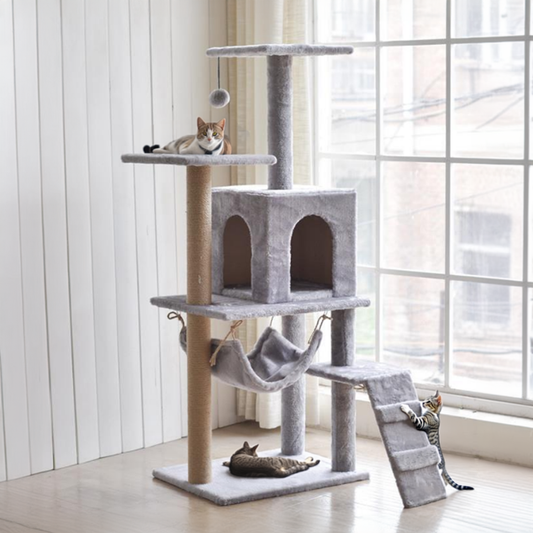Are you a proud cat owner who is tired of being woken up at 3 a.m. by your furry friend's nocturnal shenanigans? Do you long for a good night's sleep without your cat pouncing on your face or knocking things off your nightstand? Well, fear not, fellow cat lover! We have compiled a list of 10 tips to help you achieve peaceful nights and maintain your sanity (and your sleep) while living with your feline companion.
1. Establish a Bedtime Routine
Cats are creatures of habit, just like humans. By establishing a consistent bedtime routine, you can help signal to your cat that it's time to wind down and sleep. This could include playing with them, feeding them, and providing a cozy spot for them to curl up in.
2. Tire Them Out
A tired cat is a happy cat, and a tired cat is also more likely to sleep through the night. Engage your cat in interactive play sessions during the day to burn off excess energy. A feather wand or laser pointer can work wonders in getting them moving and wearing them out.
3. Create a Cat-Friendly Environment
Make sure your home is a cat paradise with plenty of toys, scratching posts, and cozy spots for them to lounge in. A happy and entertained cat is less likely to resort to nighttime mischief.
4. Feed Them Before Bed
A full belly can lead to a contented cat. Feed your cat a small meal right before bedtime to help keep them satisfied throughout the night. Just be sure not to overfeed them, as this can lead to other health issues.
5. Provide a Comfortable Sleeping Spot
Cats love to sleep in warm and cozy places. Invest in a comfortable cat bed or blanket and place it in a quiet corner of your bedroom or another designated sleeping area. This will give your cat a sense of security and a cozy spot to snooze in.
6. Use Calming Scents
Certain scents, such as lavender or chamomile, have calming effects on cats. Consider using a cat-safe calming spray or diffuser in your bedroom to create a relaxing atmosphere that encourages sleep.
7. Establish Boundaries
Set clear boundaries with your cat when it comes to nighttime activities. If your cat tends to be a night owl, consider closing your bedroom door or using baby gates to restrict their access to certain areas of the house while you sleep.
8. Avoid Encouraging Bad Behavior
As tempting as it may be to give in to your cat's demands for attention in the middle of the night, doing so will only reinforce their disruptive behavior. Ignore their antics and avoid rewarding them for waking you up.
9. Provide Mental Stimulation
Cats are intelligent creatures that need mental stimulation to thrive. Invest in puzzle toys or treat-dispensing toys that will keep your cat entertained and mentally engaged, especially during the evening hours.
10. Consult a Veterinarian
If your cat's nighttime behavior is causing you significant distress or if you suspect an underlying health issue, it's always a good idea to consult with a veterinarian. They can provide guidance and rule out any medical conditions that may be contributing to your cat's sleep disruptions.
By following these 10 tips, you'll be well on your way to achieving peaceful nights and maintaining a harmonious relationship with your feline friend. Remember, a well-rested cat is a happy cat, and a well-rested cat owner is a happy cat owner!





